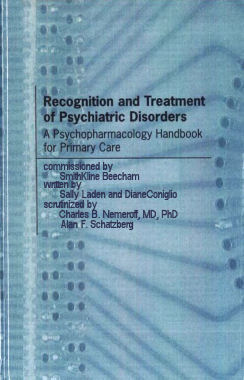As a child, I noticed that we had an odd book on our shelf – Mein Kampf by Adolf Hitler. When I got old enough to know what the book was about, I asked my Mom why she had it. She said she bought it during the war to find out what Hitler said that got a whole country to go crazy, but she kept it for me. She said that when I was older, she hoped I’d read it to understand what had happened, so it would never happen again. Later in my youth, I did read it. What I understood even back then was Hitler’s trick [and my mother’s wisdom]. There was something wrong in Germany, Hitler could feel it. As that theme built, against his own resistance to the idea, he gradually had to accept the inescapable conclusion that the something wrong was the Jews. And then the book turned monsterous as he outlined what he had in mind to do about that. You know the rest of the story. Decades later, as a Psychiatry Resident, I read it again – this time as a treatise on Paranoia written from the inside. And over the years as a Psychiatrist, when I hear a patient stringing together cherry-picked events aiming towards some conspiracy theory [becoming paranoid], in my mind I’ve thought of them as having the Hitler feeling – "There’s something wrong and it’s dawning on me what it is."
I’ve only really had the Hitler feeling once myself – not that long ago. It was in September 2002 when the entire Bush Administration hit the airways one Sunday talking about Iraq and Saddam Hussein’s WMDs – the immediate danger right around the corner. I didn’t believe it. I thought it was a trick, and when I expressed my concerns, I got slammed as a non-patriot. Unfortunately, it was a trick. I was right that time – too right. It’s not a good thing, being right about a conspiracy theory. It makes you think you have some kind of keen intuition – fanning the flames of narcissism that hide inside us all.
So now I’ve got that Hitler feeling again. I think the Pharmaceutical Industry is trying to get rid of Psychiatrists and get the treatment of the mentally ill into the hands of Primary Care Physicians who will prescribe a lot more of their products. There I’ve said it out loud. I feel better already. Beside the fact that this has already happened, what little clues have I cherry-picked to make me think such a thing? Well, I thought it when I read that Drs. Nemeroff and Schatzberg had signed on to a industry-funded, ghost-written book, called Recognition and Treatment of Psychiatric Disorders: A Psychopharmacology Handbook for Primary Care [a worthy cause…].

cover revised
And I thought it when I read some articles by a Dr. Trivedi in Texas about simple computer algorithms to direct treatment of Depression [evidence-based medicine I…].

Then recently, I thought it when I read about Eli Lilly’s Viva Zyprexa campaign because they said it outright in some of their suggested sales pitches [Zyprexa: the other early years…]:


Let’s start at the end of his 2007 editorial:
Dr. Rush has served as an advisor, consultant, or speaker for or received research support from Advanced Neuromodulation Systems, Inc.; Best Practice Project Management, Inc.; Bristol-Myers Squibb Company; Cyberonics, Inc.; Eli Lilly & Company; Forest Pharmaceuticals, Inc.; Gerson Lehman Group; GlaxoSmithKline; Healthcare Technology Systems, Inc.; Jazz Pharmaceuticals; Merck & Co., Inc.; the National Institute of Mental Health; Neuronetics; Ono Pharmaceutical; Organon USA Inc.; Personality Disorder Research Corp.; Pfizer Inc.; the Robert Wood Johnson Foundation; the Stanley Medical Research Institute; the Urban Institute; and Wyeth-Ayerst Laboratories Inc. He has equity holdings in Pfizer Inc and receives royalty/patent income from Guilford Publications and Healthcare Technology Systems, Inc.
Dr. Freedman reviewed this editorial and found no evidence of influence from these relationships.
Dr. Freedman was editor of the AJP in 2007, so it’s reassuring that he’s not bothered by Dr. Rush’s Conflicts of Interest and industry connections. Here are some cherry-picked quotes from Dr. Rush’s thoughts about STAR*D:
• "In addition, patients in primary care and psychiatric settings with major depression did not differ clinically except for slightly higher rates of general medical conditions in primary care settings, and slightly higher rates of prior suicide attempts in psychiatric settings."
• "In terms of treatment tactics, STAR*D developed and implemented easily applied methods to enhance the quality of care in both daily practice and in clinical trials in representative groups of patients. This so-called ‘measurement-based care’ entailed the routine use of simple paper-and-pencil symptom and side effect measures at each treatment visit, along with guidance based on these measures to recommend timely dose or treatment changes. A likely consequence of this high-quality, consistent care was that outcomes in primary care and psychiatric settings were not different."
• "Logically, primary care providers are well positioned — if given the time, staff support, and reimbursement support to deliver high-quality, measurement-based care — to conduct the first two treatment steps. Thereafter, more complex drug regimens are likely needed; the gains are likely to be lower; and the evidence base is truly sparse. Perhaps these steps are best left to specialists."
As reassured as I was by Dr. Freedman that Dr. Rush’s Industry connections weren’t influencing him, I thought I’d just write him about it, but, alas, he’s moved on to become the CEO of
SCRI [
Singapore Clinical Research Institute], which seems to be a Clinical Research Center for drug trials in Singapore.

ABOUT SCRI
The second phase of Singapore’s Biomedical Sciences Initiative focuses on expanding and strengthening Singapore’s capabilities in translational and clinical research, which are essential for translating research discoveries into clinical applications that will improve health care. The development of a national-level, academic research organisation like SCRI aids this goal by filling an important gap in the development of human capital and infrastructure.
SCRI houses an experienced and highly-qualified team of scientists and research staff, offering a comprehensive suite of clinical research capabilities. These areas of expertise range from clinical project development to execution, including protocol/study design, project management, site monitoring, data management, biostatistical analysis, epidemiology and evidence synthesis, and training in various aspects of clinical research.
In driving towards its vision, SCRI continues to enhance Singapore’s clinical research capabilities and strengthen its expertise in executing single and multi-site, multi-national research developing regional clinical research networks.
Am I being facetious here, pretending to be paranoid, playing like Hitler? Damned right I’m being facetious! I’m not paranoid. I’m not Hitler. I’m just a slow learner. If you read
STAR*D: What Have We Learned? all the way through, besides his plan to move treatment of depression from Psychiatry to Primary Care, Dr. Rush advocates treating people with milder symptoms, giving more medicines for longer periods, and giving combinations of medications from the very start. We’ll look further into
STAR*D shortly, but I’ll jump ahead to say that none of these recommendations are remotely supported by his study. Dr. Freedman didn’t look hard enough. The authors of
STAR*D are into the Drug Industry/Clinical Trials Industry scene up to their necks, and are part of the campaign to reduce Mental Illness to simple symptom list treated with their precious drugs using algorithms not much more sophisticated than those of the chatty lady standing next to you in the drugstore aisle.





These posts are footnotes to your book you’re writing…correct? Talk about a GREAT book, written by a retired psychiatrist exposing pharma corruption!
What on earth is the Duke-NUS Graduate Medical School? What is Duke up to over there? Also, I’m not very sure I would buy a used car from that man
Thanks Stephany. Right now, I’m taking one intrigue at a time…
Carl, I’m looking into that right now. It ain’t a pretty story. More soon…
Got it – I looked into it briefly but didn’t have the patience to get deep. I’ve wondered about Duke over the years – it seems they have a kind of Ivy-Envy and that they do things that are in the realm of over-compensating. Am I off base here?
This is my first time to your blog, thanks to the recommendation by Neuroskeptic at his site, and an interesting read, especially this post.
I’ll go you one further, not only is big pharma interested in phasing out psychiatry, I’ll be the first to say it in print (haven’t read or heard the following yet anywhere else) that Obamacare (PPACA) will basically eradicate psychiatry by 2018 as the field will be seen as an unneeded specialty, as PCP/Family Physicians/Nurse Prac’s will be viewed cheaper and allegedly more efficient. Psychiatrists, like myself, will be left to either work in state inpatient facilities, if they still exist, forensic psychiatry, or bare bones community mental health clinics that just treat treatment resistant patients of schizophrenia, mood disorders, and entrenched axis 2 presentations.
Which is one reason I fight this legislative monstrosity and will not stop until it is repealed, or I get my children through college and can then find a shack to live in and do something else for the planet. ‘Cause I refuse to practice psychiatry further if this final insult of non provider intrusions succeeds in disrupting my career.
Look forward to your further commentary.
Sincerely,
Joel Hassman, MD, board certified psychiatrist